Colonization † Can We Be Somebody’s Aliens ?
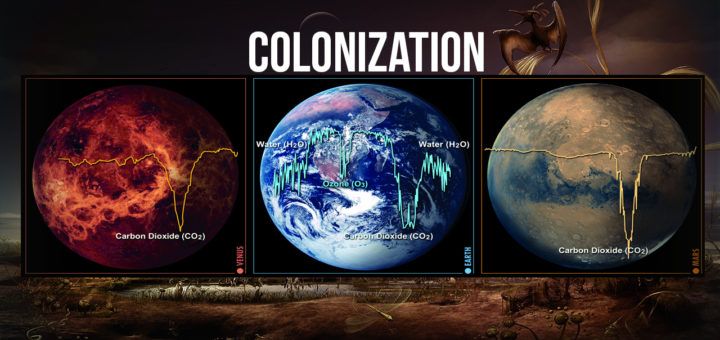
The construction of colonies would require primarily basic elements for survival: water, food, raw materials, vital support, energy, communications, transport, artificial gravity and anti-radiation protection.
Colonization of other planets has often been the subject of SF novels and films. But it is also a possibility that scientists have been researching for a long time.
Apart from traveling to a planet with colonization potential, there are also aspects of human resistance to hostile environments. It would seem, though, that there might be a solution for that.
Construction of artificial habitats may prove ineffective, but by resorting to synthetic biology instruments (a field of research combining biology and genetic engineering), scientists could “build” genetically modified humans, as well as plants or bacteria to create new Habitats on other planets.
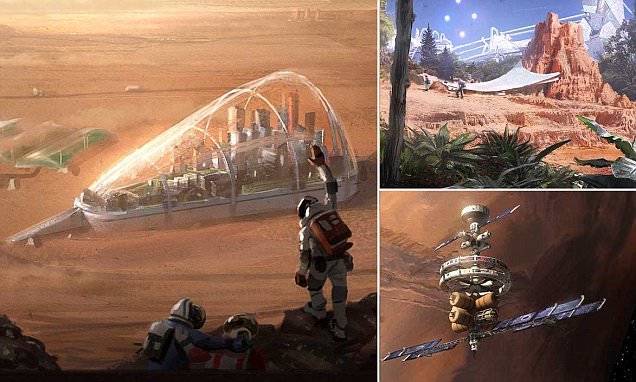
One problem is finding a planet as Earth-like to make it easier for man to adapt to the conditions there. Plans for the Earth-like outside the solar system are not to be taken into account. Distances are enormous and we do not know anything about them. We do not have the technology or the knowledge we need. To get there. And we will not be ready for this too soon.
Although this may seem easy, in reality, it is virtually impossible for such a solution to be put into practice for reasons of energy and planetary physics. SF shows us how a human group – bigger or smaller – descends from the spacecraft and everything is ok: breath freely, grow corn, make copies, etc. and everything goes well …
We overcome the lack of any technology that could cross the gap between us and another planetary system. Here we are not just talking about the fact that we do not have the technology, but we have no idea what such technology would look like. Obviously, let’s not forget the Solar Warden ⊗ Secret Space Program from Reagan’s Presidency?
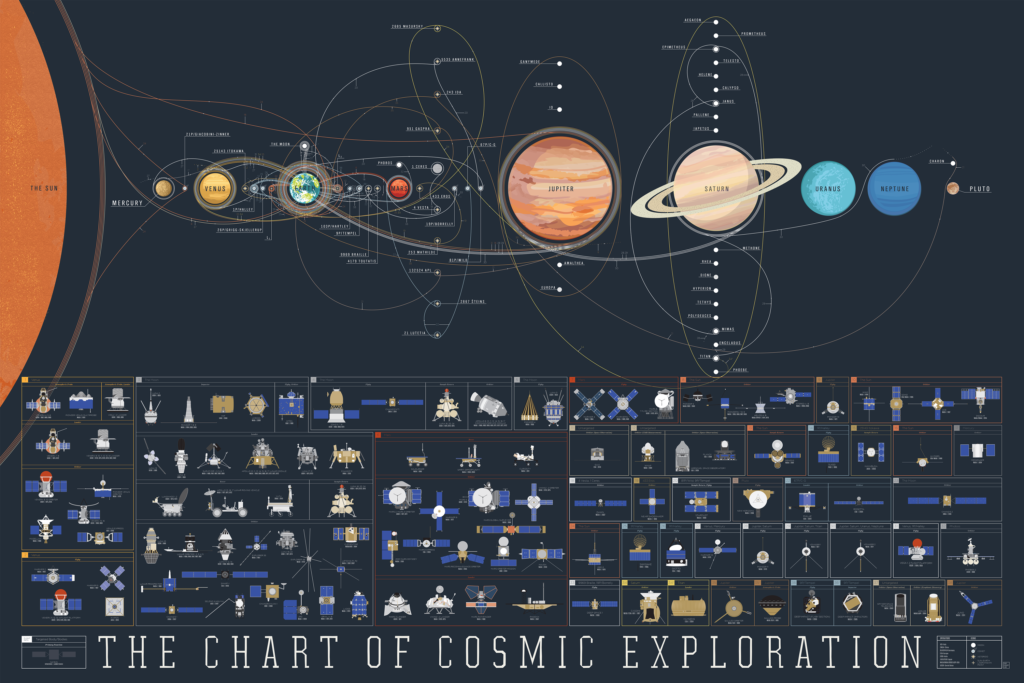
The reality of physics (biology is just another facet of physics, and we actually refer to it.) Because in reality in our universe there are only two exact sciences: Physics and its mathematical language, rest: chemistry, biology, geology, even agriculture Or music are just a part of physics) tells us that such a scenario is not only SF but also virtually impossible to put into practice.
Finding a planet identical to Earth is entirely unlikely precisely because of the exceptional diversity of our Universe. As another planet repeats the same steps Earth made in the 4.5 billion years of evolution and to achieve the same result, developing the same similar environmental conditions is something that is not even worth discussing. It is simply NOT possible to find a planet quite similar to ours where we can live freely.
“Terra-forming,” a common term is also a bad joke for many reasons. First of all, what does “terraformation” mean ?! We can change the gravity of a planet, we can modify the local bacterial and microbial flora, the type of radiation – the spectrum of the local star, we can modify the ground pressure, water chemistry, climate, the chemical structure of the soil to have crops, etc, etc ?! Probably not! Probably not!
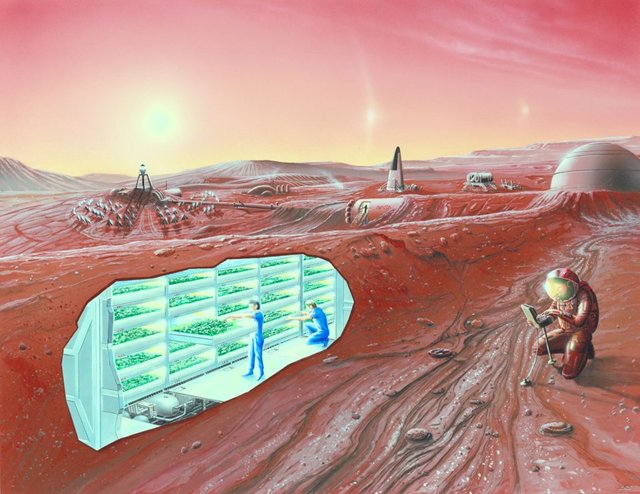
Theoretically, everything can be but the amount of energy you need can really be beyond imagination, and the terraformation process is perpetual, as soon as the disturbing factors are removed, the planet returns to the initial conditions. We could build small human settlements, mine or other industrial facilities, but build cities and bring billions of people there, is unlikely.
Problems arise from physical data: gravity, light spectrum, radiation and go to the biological: germs and bacteria that our body does not have any defensive system. Moreover, it is impossible for our plants and animals (on which we depend for survival) to grow and develop in an environment totally different from the land. Corn has no way to grow, lighted by another star because the bright spectrum is very different and a herd of cows is grazing on an alien grassland …
It is equally unlikely that we feed on animals and native plants on the alien planet because our biologists are fundamentally different.
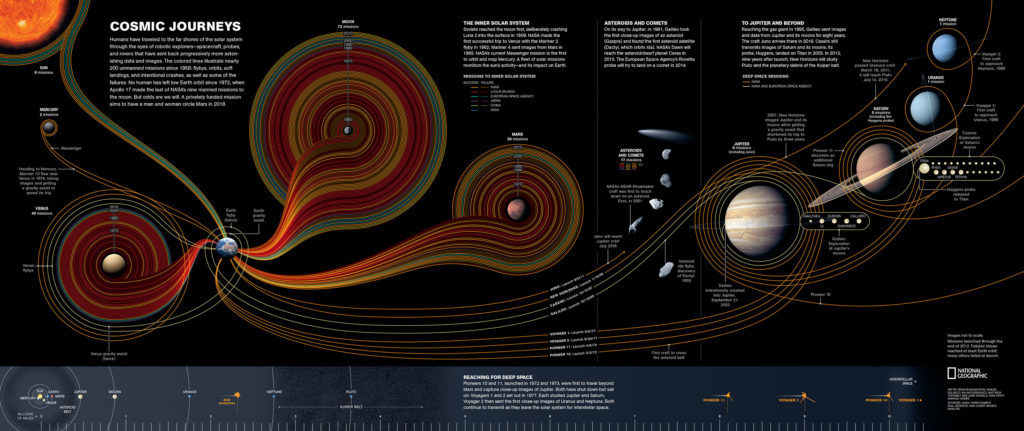
Unfortunately, no such planets are found in our solar system either. The only planets in the solar system that there might be bases, colonies in which humans can survive, could be Venus and Mars,
Planets neighboring Earth, but we could make colonies on Moon, Ceres, Jupiter’s Satellite, Europe or Saturn’s Moon, Titan, but only theoretically, because at the moment it is SF
The Venus is too hot, around 450 degrees Celsius to the surface, a very dense atmosphere with 100 atm. At ground level.
But at a certain height (30 Km) of the surface of the soil, where the conditions are much closer to those on the Earth, some bases could be arranged to float to that height and man could survive.
About such bases floating in the very dense atmosphere of Venus, it was an interesting series on Discovery. The major problem, in my opinion, would be to get the necessary resources to make safe lives there. I do not think that these bases can exist without relying on resources sent from Earth. Maybe just for a short time. So they will not be permanent, and under these conditions, we can not speak of colonization.
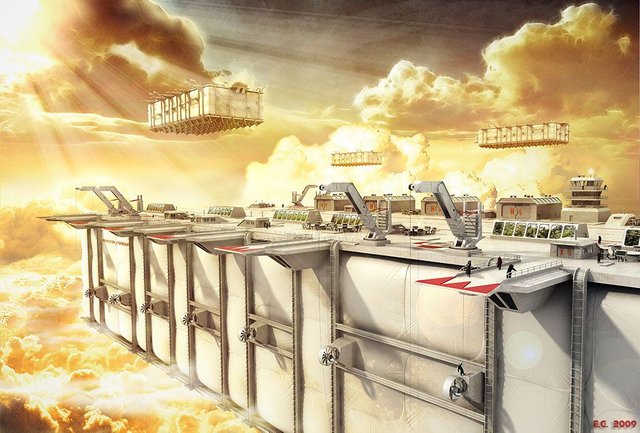
The second planet Mars is a nearly frozen wasteland. Here, a habitat could be set up to survive the people under the bark of the planet. On the surface, there is a high level of radiation, the lack of magnetic field and the rarefied atmosphere. In some seasons it is quite cold. Especially at night. Existing caves can be used, making them suitable for lower costs at an approximately constant temperature, away from killing radiation.
Another candidate in the solar system where the bases could be set up would be the Moon. Although the conditions there are quite different from Earth, it has the advantage of being the heavenly body closest to us, we were there and we know it pretty well. There might be some satellites of big planets such as Europe, Titan, but here we are talking about huge costs for. Transport and facilities, I do not think they could be permanently inhabited.
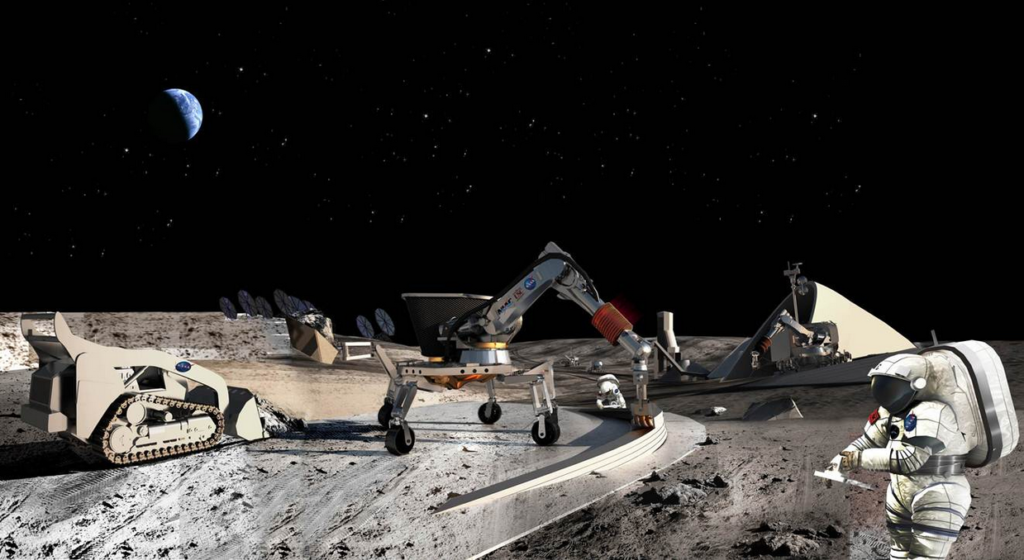
n space, bacteria become more dangerous for humans than on Earth, scientists say, bacteria that have been on board spacecraft have been affected by changes in protein and genes. Scientists do not yet understand the entire mechanism of adaptive modifications in bacterial cells, but they believe that changes in the infectivity gene accentuate the infectious properties of bacteria.
Well, if scientists do not understand the mechanism yet, it’s very serious. In this case, it is not advisable to send people on long-haul flights to colonize other planets. Very serious things can happen to them.
As I have already said, man is a being adapted to the environment in which he was born. Get the energy from the environment through food, it needs breathable air at a certain pressure, and leave back into the environment the substances that are not needed. This system of functioning of the human body is a big problem in colonizing other planets that are not Earth-like.
Colonization. In our solar system, there is no planet to fulfill such conditions except the Earth.
In order to colonize another planet or satellite in the solar system, it is necessary for man to create conditions as close as possible to those on Earth. Here on Earth man is part of a biosystem. He can not live normally outside of him. On the cosmic body where it wants to develop a colony it is also necessary to create a biosystem similar to the one on Earth.
At first, this biosystem will be small but functional. There is a need for plants, animals, and even microorganisms to develop and adjust from the conditions there. Very strict control of the development and implants of these living organisms should be undertaken. Especially microorganisms. A production cycle – as functional as possible, zero scraps should be pursued. It will have to be recycled, considering it is a closed system
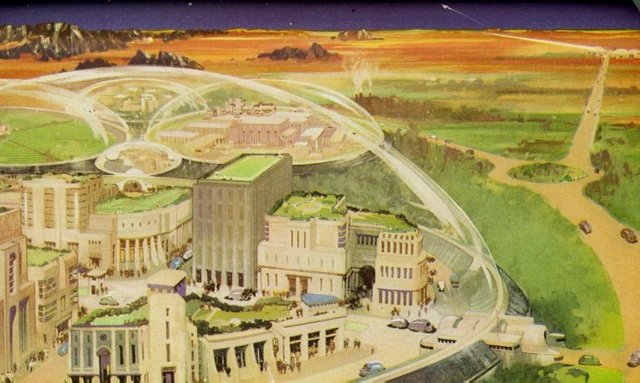
Breathing air. Because there is no breathable air on any planet of the solar system, you will need a method of producing this air on the spot. Oxygen molecules can be extracted from existing gases or other on-site materials.
Water. Water is needed for people as well as for water. plants. It must be obtained from what we have there. It will have to have the quality, the parameters as close as possible to the water on Earth. Is it radioactive or contains toxins? It will have to be cleaned, filtered, otherwise, it can kill those who consume it.
Ground. Suppose we solved the problem with water, the soil problem remains, as well as a very serious problem. It may contain various heavy or radioactive metals (in the case of Mars) coming into the plants and vegetables and from them into the body of the people of that colony with very serious consequences.
Plants. It is necessary to build seals in which the plants produce breathable air and some of the food. There are more problems here again. The greenhouses should be installed on the surface of planets or satellites. To benefit from natural light and so weak in the case of heavenly bodies far away from Mars.
On Mars, the temperatures are quite low (- 80 degrees Celsius) and increased radioactivity due to the reduced magnetic field and the rarefied atmosphere. So we will somehow have to neutralize these radiations and have a constant temperature of about 20 degrees.
There is also the issue of meteorites. Mars has a rarified atmosphere and that’s why many are not destroyed in the atmosphere and reach the surface of the soil. They can destroy greenhouses and installations.
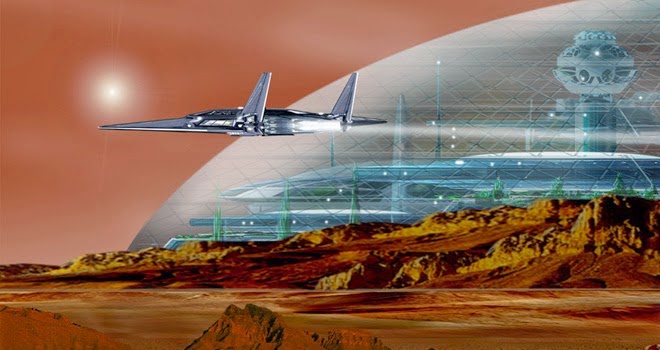
Taking into account the above problems, a solution would be to move them under the surface of the soil in some special natural caves that we have mentioned above. But here is another problem, the lack of light.
We do not know the artificial light as close as possible to natural light. Plant development. To produce such illumination, it takes a huge amount of energy that can hardly be obtained in those conditions.
Animals. As a biosystem to work next to plants, animals need to be part of it. These can be used for People’s food, for Cleaning the environment by feeding on certain components that would otherwise have to be recycled.
Or, simply for. Fun and recreation of the people in the colony. But there are problems with the transport of animals from the Earth to the colony, adapting them.
Animals living in an environment as close to the one in the colony will be needed. It takes a certain space, for example. And will grow normally. There will be a problem with space and illumination if the colony is to be located in the caves.
Like plants, they need light as close as possible to natural light. You will need a very strict account of the number of these animals, their health, the parasites that accompany them, etc.
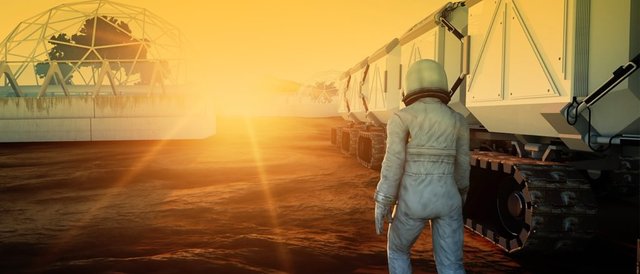
Waste. Man through his activities also produces waste. The question is, what do we do with them? Do we throw them into the environment, pollute that environment? We’re just specialists. We have big problems here on Earth and around it. We have already begun to pollute other celestial bodies where we have sent probes and possibly using microorganisms.
We will have to neutralize the waste, decompose it in environment-friendly materials, integrate it back into the environment for the environment, Not to infect the environment and the colony. If we do not do this, it is possible that in these wastes, some genetically modified microorganisms that are out of control will develop to be fatal. colony.
One problem is, if on that planet there may already be entities, some smart intelligent who do not want people to colonize that planet and take all the necessary measures to prevent it from happening.
Here on Earth we live in a symbiosis almost perfect with other living things, the system works, but on another planet, we are entering another system, we are a kind of viruses.
We can be easily dismissed if we are detected, and in my opinion, we are hardly accepted. Why? … Well, colonization in my sense means also transforming the environment using local resources and maybe they do not want that.
In this article, I have tried to achieve some of the problems that arise in colonizing other planets. In reality, they are much more than those discussed here. You see, it’s not so simple to colonize other planets. What can we do?…
We will have to wait until we are able to do so. Until then, we need to develop new clean and low-energy technologies, invent and build engines. The ships that will take us there, to explore and to know the cosmic environment as well as the human and the social relations. Let’s take care of our Terra mother, pollute as little as possible. To respect the life here.
Unfortunately, the vast majority of us behave like a kind of parasites. If we destroy this automated bio-system, we will disappear, it’s time to wake up.
For more insights watch the following video: